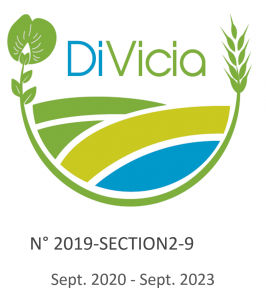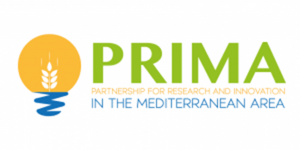Project LEVA : SPECIFICS
Sustainable PEst Control In Fabaceae-rich Innovative Cropping System
Project leaders : Stéphane Cordeau & Judith Burstin , INRAE Dijon (France), UMR Agroécologie
Project LEVA and GRAPPE : PULSAR
Protein Utilization and production in Lupinus: Species Association-driven Reviving of an orphan legume species
Project leader : Joëlle Fustec, USC LEVA (ESA, INRAE)
Project LEVA : H2020 DIVERSify
Designing InnoVative plant teams for Ecosystem Resilience and agricultural Sustainability
Project coordinator : Ali Karley, The James Hutton Institute (JHI, UK)


Project LEVA : DiVicia
Use and management of Vicia species for sustainability and resilience in biodiversity based farming systems
Project leader : Joëlle Fustec, USC LEVA (ESA, INRAE)


PROJECT JACK : Just Adopt pulses from Cook to fork
Project URSE : ALONGE
Improving dairy cow’s longevity through improvement of decision making and management for culling and replacement for a successful agro-ecological transition of dairy farms.
Project GRAPPE : BULLES NANTAISES
Project GRAPPE : JUBILO
Project GRAPPE : PRODECO
Project GRAPPE : ALIMAGE
Project GRAPPE : DEXINNOV
Project GRAPPE : FLEGME
Project GRAPPE : AAGINOV
Project GRAPPE : VSS
Project GRAPPE et LARESS : PEI HVE
Project GRAPPE : CHAIRE AAPRO
Project GRAPPE : Gingko
Project URSE (2021-2025): PRAIDIV
Contribution of grassland diversity to the management of forage systems combining grass-based feeding and ruminant health
